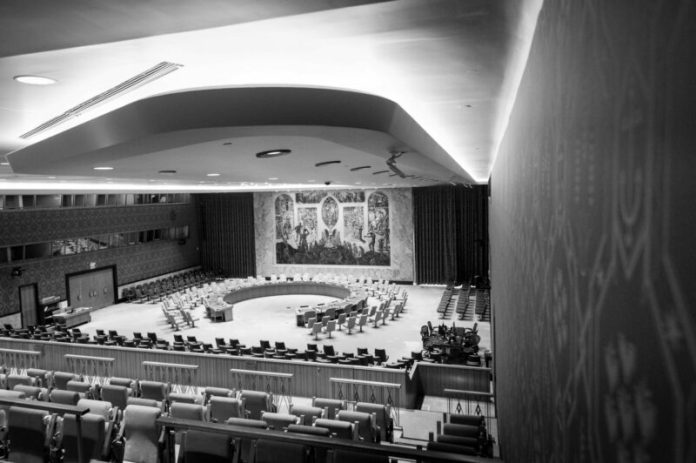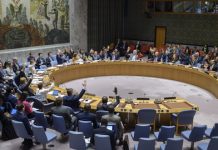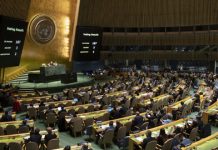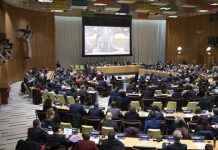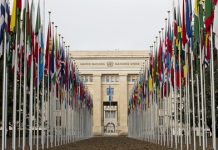Gaza: ‘People losing hope’ as aid access is refused to the north
Dead bodies are lying in the streets of besieged northern Gaza while hospitals run out of blood packs – it’s a situation that’s “nothing short of catastrophic”, the UN agency for Palestinian refugees (UNRWA) said on Tuesday.
Briefing reporters in Geneva from central Gaza, UNRWA senior emergency officer Louise Wateridge warned that amid looming famine in the Gaza Strip, people are “begging for pieces of bread, for water”.
A staggering 80 per cent of the population – some 1.7 million people in the enclave – did not receive their food rations in October, she added.
People’s daily suffering is a cause for huge concern, humanitarians say, not least the forcibly displaced people who’ve had to sleep on the ground in makeshift shelters surrounded by sewage:
“I’ve met people in the last week who have been displaced in Gaza City from the besieged area of the north that are traumatized, that are absolutely traumatized from being forcibly displaced because some of them, this is the fourteenth or fifteenth time.”
Ms. Wateridge stressed that the volume of aid currently entering the war-torn enclave is “the lowest in months”, with an average in October of only 37 trucks per day for the entire population of 2.2 million people.
According to UNRWA, this represents only around six per cent of the commercial and humanitarian supplies allowed in before the war.
Asked about a Tuesday deadline set last month by the United States for Israel to improve the aid situation in the enclave by 12 November, the UNRWA official said that instead, aid supplies have decreased.
COP29: Let’s tear down the walls to climate finance, says UN chief
UN climate summit news now from Baku, Azerbaijan, where Secretary-General António Guterres has urged leaders to cut emissions and “tear down the walls” that are blocking developing countries from accessing the investment they need to withstand the growing threats from our warming planet.
“We are in the final countdown to limit global temperature rise to 1.5 degrees Celsius – and time is not on our side,” Mr. Guterres said.
In his remarks, Mr. Guterres noted that 2024 is almost certain to be the hottest year ever recorded.
This has meant that “no country is spared” from climate destruction, ranging from hurricanes to boiling seas, drought-ravaged crops and more, the UN chief said, all of which was being supercharged by human-made climate change.
“It’s time to deliver,” he said, stressing that a poll by Oxford University and the United Nations had found that 80 per cent of people around the world want more climate action. “Scientists, activists and young people are demanding change – they must be heard, not silenced,” Mr. Guterres said.
Ukraine braces for grim winter with power shortages and airstrikes a daily reality, says UNHCR
To Ukraine, where next week it will be 1,000 days since Russia’s full-scale invasion, and it’s where UN humanitarians have warned that civilians are increasingly vulnerable, amid intense attacks and as another gruelling winter sets in.
Kelly Clements, Deputy High Commissioner for the UN refugee agency, UNHCR, said that power capacity across Ukraine is only 60 to 65 per cent of what it was last year.
This has raised concerns among vulnerable households, she told journalists in Geneva:
“The big concern is that there would be a catastrophic hit, in the middle of winter where you see freezing pipes bursting in apartment buildings with some of the most vulnerable who have not moved, trapped or unable to continue to subsist and to live in too cold places.”
Since August, 170,000 people have been forced to flee their homes in eastern Ukraine as the Russian invasion grinds on. Many have been evacuated from areas affected by fighting, joining the nearly four million who are displaced inside the country and the 6.7 million more who have sought refuge outside Ukraine.
Ms. Clements said that whereas in 2023 many Ukrainian refugees had returned, it was more likely that “there will be more people leaving the country in the next few weeks and months” because of the cold winter ahead and the war.
Daniel Johnson, UN News
Music composed and produced by Joachim Harris. All rights reserved
Source of original article: United Nations (news.un.org). Photo credit: UN. The content of this article does not necessarily reflect the views or opinion of Global Diaspora News (www.globaldiasporanews.com).
To submit your press release: (https://www.globaldiasporanews.com/pr).
To advertise on Global Diaspora News: (www.globaldiasporanews.com/ads).
Sign up to Global Diaspora News newsletter (https://www.globaldiasporanews.com/newsletter/) to start receiving updates and opportunities directly in your email inbox for free.


